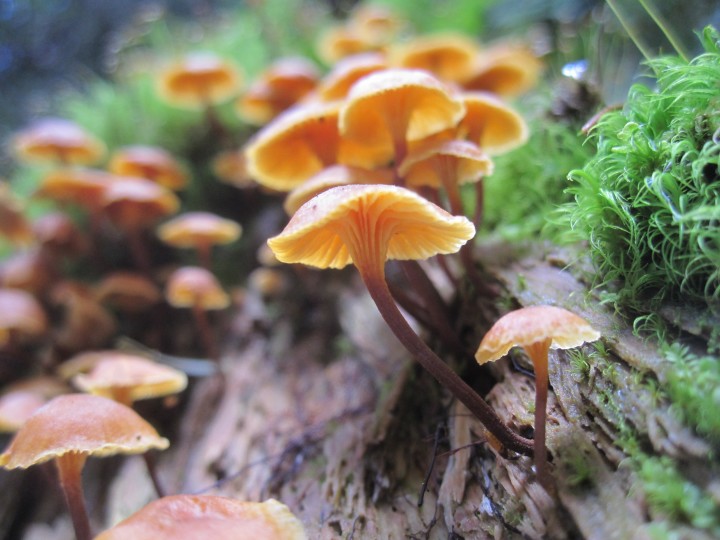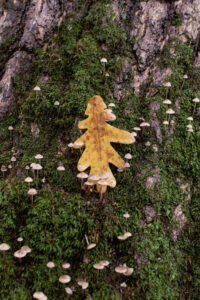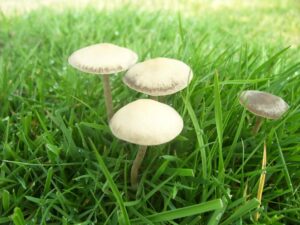
Unlocking the Potential: Understanding The Legal Status of Magic Mushrooms in Canada
Magic mushrooms, also known as shrooms or psilocybin mushrooms, have a long history of use for their psychedelic properties. In recent years, there has been growing interest in the potential therapeutic benefits of magic mushrooms, particularly in the field of mental health. As a result, the legal status of magic mushrooms in Canada has become a topic of discussion and debate.
In this blog post, we will delve into the legal status of magic mushrooms in Canada, exploring the current regulatory framework, the arguments for and against legalization, and the advocacy efforts supporting a more progressive approach. With a focus on the potential benefits and responsible use, this blog aims to provide an informative and balanced perspective on the legal status of magic mushrooms in Canada. So, let’s unlock the potential and gain a deeper understanding of this intriguing topic. Whether you are curious about the legal landscape, interested in the therapeutic potential, or looking to buy shrooms online in Canada, this blog post is for you. Let’s dive in!

The Rise of Magic Mushrooms in Canada
In recent years, there has been a growing interest and appreciation for the potential benefits of magic mushrooms in Canada. Commonly referred to as “shrooms” or “magic mushrooms,” these naturally occurring fungi contain a compound called psilocybin, which has been found to have promising therapeutic effects for mental health conditions such as depression, anxiety, and PTSD. Read more on the types and effects of magic mushrooms. As more research and anecdotal evidence highlight the potential positive impact of magic mushrooms, an increasing number of Canadians are seeking to explore their potential benefits.
In Canada, the legal status of magic mushrooms is currently classified as a Schedule III substance under the Controlled Drugs and Substances Act (CDSA), which means it is illegal to possess, produce, or distribute psilocybin-containing mushrooms. However, despite their legal status, many Canadians are still able to access magic mushrooms through online sources, such as “Buy Shrooms Online Canada” platforms, which operate in a legal gray area due to loopholes in the current legislation. This has contributed to a growing interest and demand for magic mushrooms in Canada, with many individuals seeking to understand the legal landscape surrounding their use.
The Case for Legalization of Magic Mushrooms in Canada
Advocates for the legalization of magic mushrooms in Canada argue that the current legal status is outdated and does not align with the growing body of evidence supporting their potential therapeutic benefits. Research has shown that psilocybin has the potential to alleviate symptoms of mental health conditions and improve overall well-being, with some studies even suggesting that a single guided psilocybin session could have long-term positive effects on mental health.
Furthermore, proponents of magic mushroom legalization argue that regulation and legalization would help address safety concerns associated with the black market. Currently, individuals who seek to use magic mushrooms in Canada often have to rely on unregulated sources, which may pose risks in terms of quality, dosage, and purity. Legalization and regulation would allow for standardized dosages, quality control measures, and safe usage guidelines, reducing the potential risks associated with the use of magic mushrooms.
Moreover, proponents of magic mushroom legalization emphasize the potential economic benefits. The emerging legal cannabis market in Canada has shown that regulated and taxed sales can generate significant revenue for the government, which could be used to fund education, research, and public health initiatives. Legalizing magic mushrooms could also create job opportunities in the emerging psychedelic industry, stimulate tourism, and contribute to economic growth.

Global Trends in Magic Mushroom Legalization
The global landscape surrounding the legalization of magic mushrooms has been evolving rapidly in recent years. Several countries and jurisdictions have already taken steps toward the legalization or decriminalization of magic mushrooms, signaling a shifting paradigm in how these substances are viewed and regulated.
For example, in the United States, the states of Oregon and Washington, D.C., have recently passed measures to allow for the regulated medical use of psilocybin, with other states considering similar measures. In Brazil, the use of ayahuasca, a traditional Amazonian brew that contains the psychedelic compound DMT, has been legalized for religious and cultural purposes. In Jamaica, the use of psilocybin mushrooms has been decriminalized, with possession and cultivation for personal use no longer considered a criminal offense.
These global trends in magic mushroom legalization reflect a growing recognition of the potential benefits and risks associated with these substances and a shift towards more progressive and evidence-based approaches to regulation. Many advocates in Canada argue that it’s time for the country to follow suit and adopt a more progressive stance on the legal status of magic mushrooms.
Addressing Concerns and Misconceptions
Opponents of magic mushroom legalization in Canada often raise concerns and misconceptions about the potential risks and negative impacts associated with their use. Some common concerns include the potential for misuse, increased rates of addiction, and the potential for adverse effects on mental health.
However, advocates for magic mushroom legalization argue that these concerns are often based on misconceptions and a lack of accurate information. Research has shown that the risks associated with the use of magic mushrooms are relatively low compared to many other substances, with a low potential for addiction and a low risk of overdose. Moreover, many of the adverse effects associated with magic mushroom use, such as “bad trips” or psychological distress, can be mitigated through proper education, preparation, and guided experiences.
Furthermore, proponents of magic mushroom legalization emphasize the importance of regulation and education to address potential risks. Just as with cannabis, the legalization of magic mushrooms would allow for the implementation of strict regulations, including age restrictions, quality control measures, and dosage guidelines, to minimize potential risks and ensure safe usage. Additionally, proper education about the risks and benefits of magic mushrooms, as well as harm reduction practices, could be integrated into public health initiatives to promote responsible and informed use.
The Road Ahead: Advocacy for Magic Mushroom Legalization in Canada
As the body of evidence supporting the potential benefits of magic mushrooms continues to grow, advocates for their legalization in Canada are gaining momentum. Proponents argue that the current legal status of magic mushrooms is inconsistent with the growing body of evidence and global trends in regulation and that a more progressive approach is needed to unlock their therapeutic potential.
Advocacy efforts for magic mushroom legalization in Canada include grassroots initiatives, advocacy organizations, and lobbying efforts to raise awareness, educate the public, and engage policymakers. Many proponents of legalization are advocating for a science-based approach, calling for further research, evidence-based policy-making, and the integration of psychedelic-assisted therapies into the Canadian healthcare system.
Furthermore, proponents of magic mushroom legalization emphasize the importance of public support and engagement. Many Canadians are already using magic mushrooms for therapeutic or recreational purposes, and their voices and experiences are vital in shaping the conversation around legalization. Public awareness campaigns, community dialogues, and open discussions can help foster a more informed and inclusive conversation about the legal status of magic mushrooms in Canada.

Conclusion
In conclusion, the legal status of magic mushrooms in Canada is currently classified as a Schedule III substance, making it illegal to possess, produce, or distribute psilocybin-containing mushrooms. However, there is a growing body of evidence supporting the potential therapeutic benefits of magic mushrooms, and global trends in regulation are shifting towards more progressive approaches. Advocates for magic mushroom legalization in Canada argue that regulation, education, and responsible use can help unlock their therapeutic potential while addressing potential risks.
As the conversation around the legal status of magic mushrooms continues to evolve, it is essential to approach it from an evidence-based and informed perspective. Further research, public engagement, and advocacy efforts are needed to promote responsible regulation and ensure that Canadians have access to safe and informed usage of magic mushrooms. With continued efforts towards education, advocacy, and evidence-based policy-making, Canada may see a more progressive and inclusive approach to the legal status of magic mushrooms in the future.
